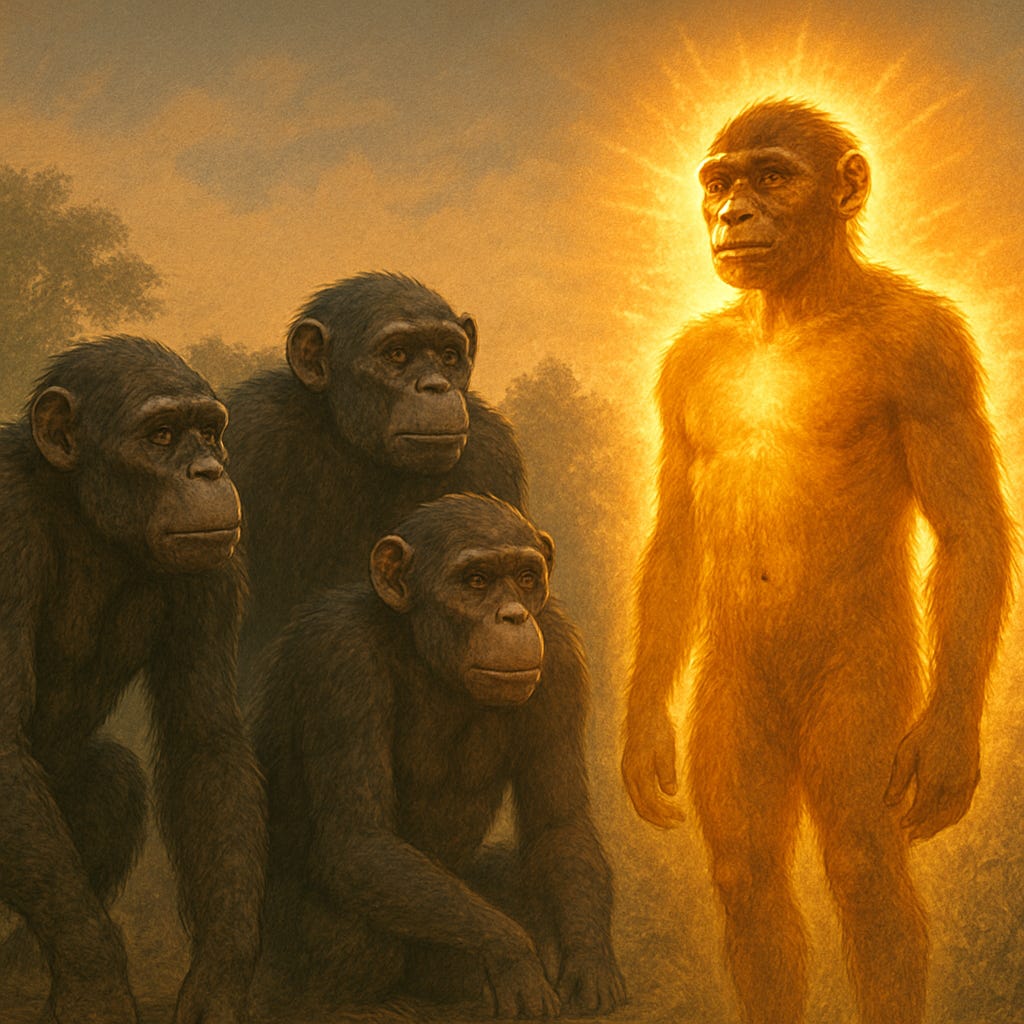Constructivist Left, Exceptionalist Right and Zoocentric Freedom
Debates about human nature usually collapse into two stale camps.
The Constructivist view, most common on the Left, sees people as blank slates—infinitely plastic and in need of enlightened elites to shape them. Rousseau, Marx, and modern progressives follow this path, imagining benevolent central planners who can mold society for the better. It easily drifts into conspiracy-theory thinking of the “good cabal” type—powerful institutions that, if trusted, will deliver justice and progress.
The Exceptionalist view, often found on the Right, holds that humans are set apart by divine or biological gifts. Traditional religious conservatives argued for innate moral endowments; Buchanan defended unique cultural essences; today’s Woke Right, from Bannon on down, insists that “real people” have authentic instincts under siege by corrupt elites. Here the conspiracy-theory thinking flips: elites are not benevolent saviors but demonic forces bent on destruction.
Against both sits a third view: Zoocentrism. Thinkers like Adam Smith and Hayek recognized that humans are not blank or uniquely divine, but ordinary animals whose instincts are harnessed by cultural evolution into new powers—markets, science, free expression. I’ve argued in my own books that this Nature-Harnessing process is why we can cling to zoocentrism even though it seems as if we’re biologically distinct. Just as Galileo explained why it looked like the Sun circled the Earth, harnessing explains why humans appear to transcend the animal kingdom: culture evolved to reshape our existing instincts—making speech feel natural, writing look like nature, and more.
Both Constructivists and Exceptionalists reduce humans to caricatures. Zoocentrism instead sees us clearly: base animals, transformed by culture, with all the promise—and dangers—that emergent forces bring.


